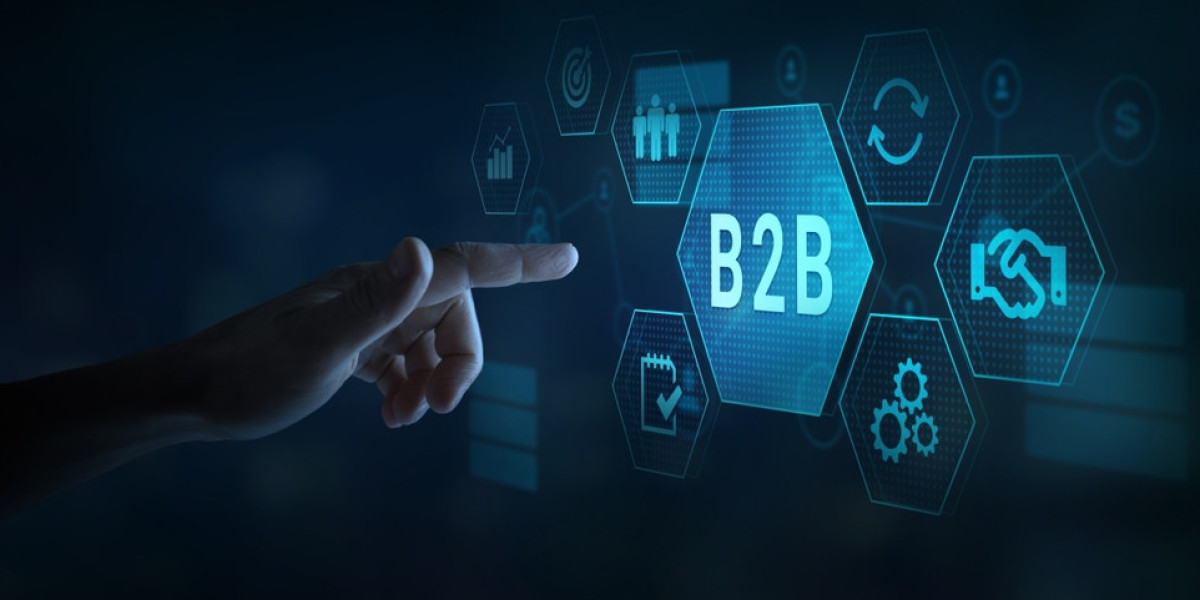The landscape of B2B lead generation is constantly evolving. As businesses adapt to new technologies, changing consumer behaviors, and shifting market dynamics, one thing remains clear: the future of lead generation is increasingly data-driven, personalized, and AI-powered.
At Acceligize, we’re committed to helping B2B companies stay ahead of the curve, and that’s why we’re exploring the most important trends in B2B lead generation that businesses can’t afford to ignore in 2025.
1. AI-Powered Lead Scoring and Personalization
Artificial Intelligence (AI) is revolutionizing how businesses approach lead generation. By 2025, AI-powered lead scoring will become the gold standard in identifying the most promising leads. AI can analyze vast amounts of data to determine which leads are most likely to convert based on behavior, engagement patterns, and historical trends.
This means marketing teams will be able to:
- Automate lead qualification.
- Prioritize leads based on their readiness to buy.
- Deliver highly personalized content that speaks directly to the needs of individual prospects.
With personalization at the forefront of marketing efforts, businesses will need to leverage AI to deliver hyper-targeted experiences, ensuring the right content reaches the right prospect at the right time.
2. Account-Based Marketing (ABM) at Scale
Account-Based Marketing (ABM) has proven to be one of the most effective strategies for B2B companies. In 2025, ABM will continue to rise in popularity, but with a significant evolution. ABM will become more automated and scalable with the help of AI and machine learning.
By using AI tools to identify high-value target accounts, businesses can streamline their ABM efforts and tailor content and messaging to specific stakeholders within each account. With ABM, companies can build deeper relationships with their prospects, leading to more high-quality conversions and higher lifetime value.
3. Data-Driven Insights and Predictive Analytics
As the amount of data available continues to grow, companies in 2025 will rely more than ever on predictive analytics to drive their lead generation efforts. Predictive analytics uses historical data, trends, and statistical algorithms to forecast future behaviors, enabling businesses to make smarter decisions.
For B2B lead generation, predictive analytics will:
- Help businesses forecast which leads are most likely to convert.
- Provide real-time insights into lead behavior and interest.
- Optimize sales and marketing strategies based on data-driven predictions.
These insights will enable businesses to focus their resources on the most profitable opportunities, improving both lead quality and conversion rates.
4. The Continued Rise of Video Content
Video has already become a dominant form of content in B2B marketing, and by 2025, it will play an even more integral role in lead generation. Whether through webinars, explainer videos, or personalized video emails, B2B marketers will increasingly rely on video to connect with prospects.
Why? Video content offers several key benefits:
- Increased Engagement: Video is more engaging and allows for a more dynamic way to present products and solutions.
- Enhanced Trust: Personalized videos help build trust and authenticity with leads.
- Better Conversion Rates: Video has been shown to increase conversion rates significantly by creating a more compelling call-to-action.
As video technology continues to evolve, its integration into B2B lead generation will only become more powerful.
To know more visit us @ https://acceligize.com/
5. Interactive and Immersive Content
The future of lead generation will also see the rise of interactive content such as quizzes, surveys, polls, and augmented reality (AR) experiences. By 2025, B2B marketers will leverage immersive content to engage and convert leads in innovative ways.
Interactive content helps:
- Increase Engagement: By actively involving the prospect, businesses can create a memorable experience.
- Qualify Leads: Quizzes and surveys can serve as a tool for qualifying leads based on their responses.
- Provide Instant Value: Interactive content can give prospects personalized recommendations based on their preferences.
By offering unique experiences, companies will be able to capture valuable data and move leads further down the funnel.
6. Voice Search and Conversational Marketing
With the growing use of voice-activated devices like Amazon Alexa and Google Assistant, voice search will become an increasingly important tool for B2B lead generation. By 2025, businesses will need to optimize their content for voice search to ensure they remain discoverable.
At the same time, conversational marketing — powered by chatbots, messaging apps, and voice assistants — will allow B2B marketers to engage in real-time conversations with prospects. These interactions will provide a seamless, personalized experience, helping businesses guide prospects through the buyer’s journey more efficiently.
7. Privacy and Data Security
With increasing concerns around privacy and data security, GDPR and other regulations will continue to shape how businesses handle customer data. In 2025, companies will need to be more transparent and responsible with their data collection practices, and lead generation strategies will need to align with stricter privacy laws.
Customers will be more likely to trust companies that prioritize data security, so it will be crucial for businesses to adopt best practices and ensure compliance with global privacy standards.
8. Social Selling and Community Building
As B2B buyers increasingly turn to social media platforms for research and peer recommendations, social selling will be an essential part of lead generation in 2025. Platforms like LinkedIn, Twitter, and even niche industry forums will become powerful tools for engaging prospects and building relationships.
Furthermore, companies will place a greater emphasis on community building — both online and offline. By creating communities around their brand, businesses can generate organic leads through peer-to-peer recommendations, reviews, and referrals.
9. Omnichannel Marketing Strategies
In 2025, B2B companies will adopt omnichannel marketing strategies to create a seamless experience across all customer touchpoints. Whether prospects engage through email, social media, paid ads, or in-person events, businesses will need to deliver a consistent, unified experience.
With the help of integrated technology, marketing teams will be able to track interactions across channels and optimize their strategies in real-time to ensure prospects are engaged throughout the entire journey.
10. The Evolution of Customer-Centric Marketing
By 2025, B2B marketing will be more customer-centric than ever before. Lead generation will be driven by a deep understanding of customers’ unique pain points, preferences, and behaviors. Businesses that prioritize the customer experience and adopt a consultative approach to selling will be the ones that thrive in the future.
Read More @ https://acceligize.com/featured-blogs/the-future-of-b2b-lead-generation-trends-you-cant-ignore-in-2025/







